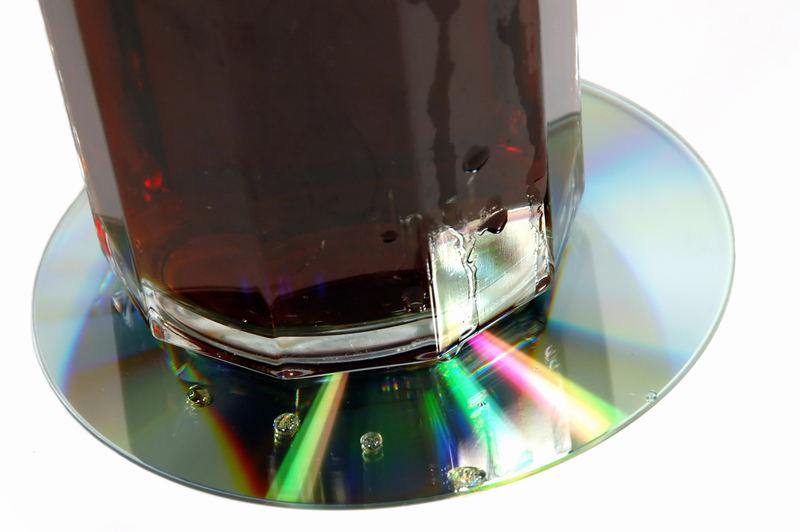How to Transition to a Low-Plastic Lifestyle
The modern world is awash with plastic--an innovation that has brought convenience and versatility but has also paved the way for environmental challenges. Today, more people than ever are considering a low-plastic lifestyle to reduce their ecological footprint and help protect the planet. Whether you're looking to eliminate single-use items or transform your entire relationship with plastic, this comprehensive guide will empower you to make meaningful and lasting changes.
Why Transition to a Low-Plastic Lifestyle?
Plastic pollution poses a significant threat to ecosystems, wildlife, and even human health. Every year, millions of tons of plastic waste end up in oceans and landfills, harming marine life and contaminating food chains. Transitioning to a low-plastic lifestyle is a powerful way to protect the environment and promote sustainable living. By reducing plastic use, you can decrease your contribution to pollution and inspire others to take action.
Understanding the Impact of Plastic
- Long Decomposition Period: Most plastics take hundreds of years to break down, persisting in the environment.
- Microplastic Contamination: Plastics fragment into microplastics, which are consumed by marine animals and can enter the human food chain.
- Resource Intensive Production: Manufacturing plastic relies on fossil fuels, contributing to greenhouse gas emissions.

Getting Started with a Low-Plastic Lifestyle
Adopting a low-plastic lifestyle begins with awareness and a willingness to make gradual improvements. You don't need to eliminate all plastics overnight--instead, focus on replacing single-use items and forming new habits. Here's how you can start your low-plastic journey effectively:
1. Audit Your Plastic Use
- Take a week to observe and note all the plastics you use and dispose of daily.
- Identify key sources such as food packaging, bathroom products, and cleaning supplies.
- Pinpoint items that are easy to replace or eliminate first.
2. Set Realistic Goals
Going plastic-free is a process, not a destination. Set achievable goals, like avoiding bottled drinks or refusing plastic straws. As small victories build confidence, you'll be ready for bigger challenges.
Low-Plastic Lifestyle Changes for Every Area of Your Life
Transitioning to a low-plastic lifestyle touches on almost every aspect of daily living--from shopping and cooking, to personal care and social events. Here are detailed, practical steps to help reduce your reliance on plastic in key areas:
The Kitchen
- Switch to Reusable bags and containers: Opt for cotton or jute shopping bags and glass or stainless steel containers instead of plastic.
- Buy in Bulk: Support stores that offer bulk bins, allowing you to fill your own reusable containers.
- Choose Fresh over Packaged: Buy loose produce and avoid pre-wrapped meals and snacks.
- Say No to Single-Use Plastic Wrap: Try beeswax wraps, silicone lids, or simple plates to cover food.
Personal Care and Hygiene
- Opt for Bar Soaps: Switch from liquid soaps and shampoos in plastic bottles to solid bars in recyclable or compostable wrappers.
- Toothpaste Tablets: Some stores offer toothpaste in tablet form, eliminating the need for tubes.
- Choose Wooden or Bamboo Brushes: Replace plastic toothbrushes, hairbrushes, and razors with sustainable alternatives.
Cleaning and Laundry
- Make DIY Cleaning Products: Vinegar, baking soda, and lemon can replace many cleaners packaged in plastic.
- Buy in Bulk: If DIY isn't your style, opt for large refill containers or seek out refill stations for detergents and soaps.
- Use Reusable Cloths: Swap disposable wipes for washable cloths or sponges.
Out and About
- Carry a Reusable Water Bottle: Stainless steel or glass bottles are durable and reduce single-use waste.
- Bring Your Own Cutlery and Straw: Compact, reusable sets save you from using plastic at cafes or takeout restaurants.
- Say No to Plastic Bags: Keep a foldable tote handy for unexpected purchases.
Shopping Tips for a Low-Plastic Lifestyle
One of the most important aspects of a low-plastic lifestyle is conscious consumption. Changing the way you shop can dramatically decrease your household's plastic use and support businesses that prioritize sustainability.
Choose Products with Minimal Packaging
- Seek Alternative Materials: Select products packaged in paper, glass, or metal.
- Favor Bulk Purchases: Items purchased in larger quantities use less packaging per use.
- Support Local: Farmers' markets and local shops often use less plastic and are more receptive to reusable containers.
Shop from Eco-Friendly Brands
- Look for Certifications: Brands certified as B Corporations, Fair Trade, or Zero Waste make sustainability a priority.
- Read Labels: Avoid products described as 'biodegradable plastic,' which may not break down as expected.
- Give Feedback: Encourage grocery stores to provide more sustainable options.
Food and Meal Planning Without Plastic
Food packaging is a major contributor to plastic waste. Here's how to embrace a low-plastic lifestyle while still enjoying delicious, nutritious meals:
Farmers' Markets and Bulk Stores
- Bring Reusable Produce Bags: Lightweight cotton or mesh bags are ideal for fruits and vegetables.
- Refill Containers: Take your own containers to bulk stores for staples like grains, nuts, and spices.
Meal Prep and Storage
- Cook from Scratch: Homemade meals avoid excessive packaging and processed ingredients.
- Store Leftovers Sustainably: Use glass jars, metal tins, or silicone bags rather than cling wrap or plastic boxes.
Handling Waste and Recycling
Some plastic is difficult to avoid entirely. Learning how to dispose of it responsibly is crucial for maintaining a low-plastic lifestyle.
Recycle Intelligently
- Know Your Local Rules: Recycling guidelines vary by location, so research which plastics are accepted.
- Clean Your Plastics: Rinse food containers before recycling to prevent contamination.
- Participate in Special Programs: Some retailers offer take-back schemes for difficult-to-recycle plastics like bags and films.
Composting as an Alternative
Composting food scraps reduces the need for plastic trash bags and returns nutrients to the earth. Many cities now collect compostable material, making it easier than ever to divert waste.
Motivation, Mindset, and Community
Transitioning to a low-plastic lifestyle is a journey--one that can be challenging, but also incredibly rewarding. Motivation and support are key to long-term success.
Celebrate Small Wins
- Track your progress: Whether it's plastic bags avoided or new habits mastered, every step counts.
- Share your journey: Post photos or stories online to inspire friends and family.
Find Your Community
- Join local or online groups: Swap tips, share resources, and encourage one another.
- Host or Attend Workshops: Learn new skills like making your own shampoo or upcycling containers.
Advocate for Change
- Contact companies and policymakers: Ask for reduced packaging and better recycling policies.
- Support bans and legislation: Lend your voice to movements against single-use plastics.

Overcoming Common Challenges
A low-plastic lifestyle isn't always straightforward, especially in a world optimized for convenience. However, you can meet most challenges with creativity and persistence:
- Availability: Not all areas have bulk stores or zero-waste shops. In such cases, order from sustainable retailers online or do the best with what's available.
- Cost: Some substitutes may initially seem more expensive but often save money in the long term by being reusable.
- Habit Change: Replacing lifelong habits takes time--focus on progress, not perfection.
Conclusion: Your Path to a Low-Plastic Life
Transitioning to a low-plastic lifestyle is one of the most impactful choices you can make for our planet. By auditing your plastic use, making practical swaps, and building community, you'll not only reduce your ecological footprint but also inspire positive change. Remember, every reusable bag, bottle, or container is a small victory for the earth. Start today, stay persistent, and watch as your low-plastic journey transforms your life--and the world around you.
- Start small, but start today.
- Make informed choices every day.
- Share your progress and support others.
Making sustainable, low-plastic choices isn't always easy, but together, we can create a cleaner, healthier world for generations to come.